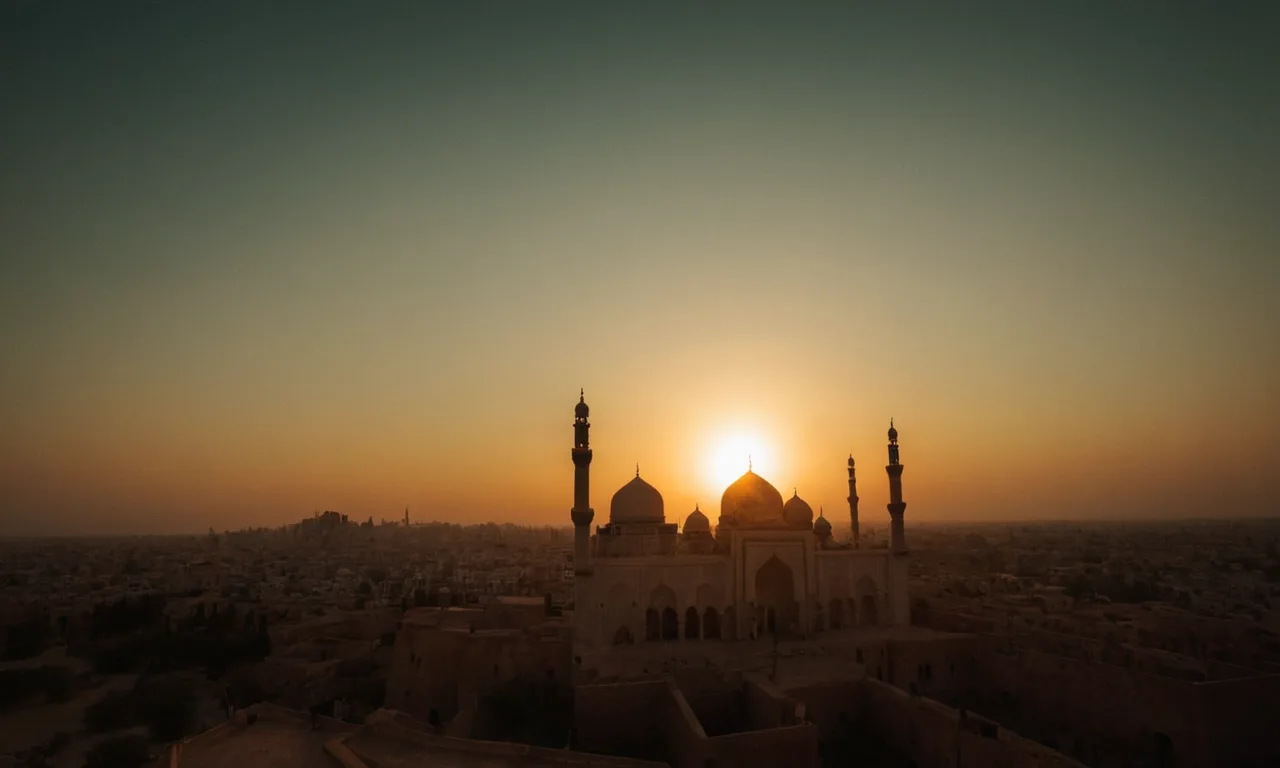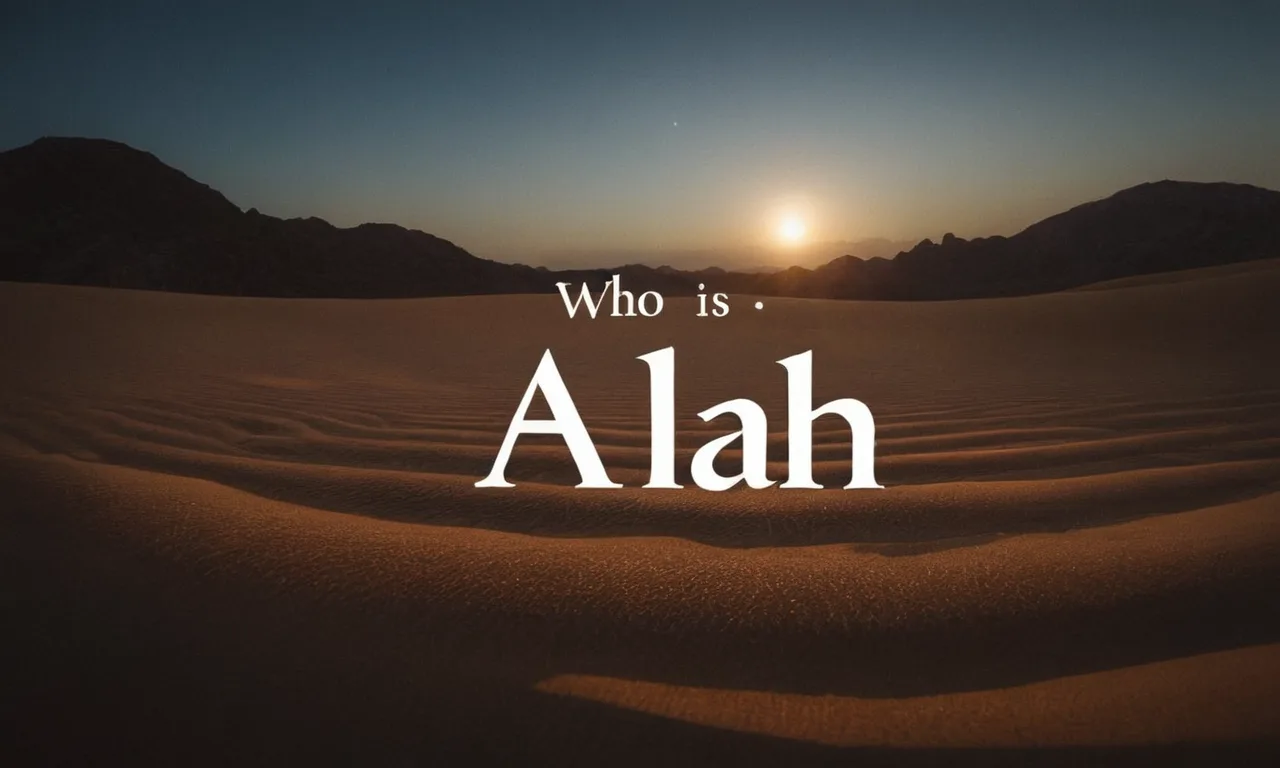Allah, an Arabic term meaning God, holds a central place in Islam and the Qur’an. The testament of faith, “There is no God but Allah,” highlights His oneness in Islamic belief. As Rabb al-Alamin, the Lord of all Worlds, Allah governs over all creation—humans, animals, the universe, and beyond. He is the Creator, the Provider, who grants life and causes death, and the ultimate Judge. For Muslims, understanding Allah is key to embracing faith and comprehending the divine power that sustains everything in this world and the next.
In Islam, the term Allah refers to the One True God, the Creator of the universe, and the Sustainer of all life. For over 1.9 billion Muslims worldwide, Allah is central to every aspect of life, both spiritually and practically. This blog will introduce the concept of Allah, exploring His nature, attributes, and the significance of understanding Him in the context of Islamic faith.
Who is Allah?
Allah is the Arabic word for “God.” It is used by Muslims and Arabic-speaking Christians and Jews to refer to the Almighty. Unlike other terms that might imply multiple gods or deities, Allah signifies the one and only God, indivisible and without equal. In Islam, the belief in Allah’s oneness, also known as Tawhid, is the foundation of the faith.
“Say, ‘He is Allah, [who is] One. Allah, the Eternal Refuge. He neither begets nor is born, nor is there to Him any equivalent.'” (Quran 112:1-4)
This verse from Surah Al-Ikhlas emphasizes the core Islamic belief in Allah’s oneness and uniqueness. Allah has no partners, children, or equals, and His existence is eternal.
Attributes of Allah
In the Quran, Allah describes Himself through His many attributes, which are known as the Asma ul-Husna (The 99 Beautiful Names of Allah). These names give us insight into His nature, helping believers understand how Allah interacts with His creation. Some of the key attributes include:
- Ar-Rahman (The Most Merciful): Allah’s mercy encompasses all things, and He is compassionate toward His creation.
- Al-Aleem (The All-Knowing): Allah has knowledge of everything—past, present, and future. Nothing is hidden from Him.
- Al-Hakeem (The All-Wise): Allah’s wisdom governs everything in creation. His decisions and decrees are made with perfect wisdom.
- Al-Khaliq (The Creator): Allah is the creator of the heavens, the earth, and everything in between. He creates with purpose and precision.
- Al-Adl (The Just): Allah is perfectly just in all His judgments and actions. He rewards good deeds and holds everyone accountable for their choices.
“To Allah belong the best names, so invoke Him by them.” (Quran 7:180)
By reflecting on Allah’s names and attributes, Muslims can deepen their relationship with Him and gain a more profound understanding of His role as the Creator and Sustainer.
Allah’s Role in the Universe
Allah is not only the Creator of the universe but also its constant sustainer. Every action, event, and moment in the universe is under His command. He controls the movement of the planets, the growth of plants, the rise and fall of nations, and the lives of every individual. Nothing happens without His permission.
“Indeed, your Lord is Allah, who created the heavens and the earth in six days and then established Himself above the Throne. He arranges each matter; there is no intercessor except after His permission.” (Quran 10:3)
This verse highlights Allah’s supreme authority over creation and His direct involvement in the affairs of the universe. His power and will are absolute, and nothing escapes His knowledge or control.
How to Develop a Relationship with Allah
Building a relationship with Allah is essential for every Muslim. It is through this connection that one can find purpose, peace, and guidance in life. Here are a few key ways to develop a closer relationship with Allah:

- Prayer (Salah): Muslims are required to pray five times a day, connecting directly with Allah. These prayers are a means of remembering Allah and seeking His guidance and support.
- Reading the Quran: The Quran is Allah’s final revelation to humanity. By reading and reflecting on its verses, one can better understand Allah’s messages and how to live in accordance with His will.
- Supplication (Dua): Dua is a personal form of prayer in which Muslims ask Allah for help, forgiveness, and blessings. It is an intimate conversation with the Creator, demonstrating reliance on Him.
- Gratitude: Expressing gratitude to Allah for the blessings in life strengthens the bond between the believer and the Creator. Allah loves those who are grateful, and gratitude fosters a positive relationship with Him.
- Acts of Worship and Kindness: Living in a way that pleases Allah—through honesty, charity, and kindness to others—brings a person closer to Him and increases their love for Him.
“And when My servants ask you concerning Me, indeed I am near. I respond to the invocation of the supplicant when he calls upon Me.” (Quran 2:186)
This verse reminds believers that Allah is always close, ready to respond to those who call upon Him sincerely. Developing a relationship with Allah is about maintaining constant awareness of His presence in everyday life.
The Importance of Tawhid (Oneness of Allah)
At the core of Islamic belief is Tawhid, the belief in the oneness of Allah. It is the most important concept in Islam, and every aspect of a Muslim’s life is influenced by it. Tawhid teaches that Allah is the sole Creator, the only one deserving of worship, and there is no one like Him in His attributes or actions.
Believing in Tawhid also means rejecting any form of polytheism (Shirk), which is considered the greatest sin in Islam. Muslims affirm the oneness of Allah in every prayer, constantly reinforcing their commitment to worship Him alone.
“Worship Allah and associate nothing with Him.” (Quran 4:36)
This commandment underscores the importance of maintaining the purity of belief in Allah’s oneness, which is the foundation of faith in Islam.
Conclusion
Understanding who Allah is forms the foundation of Islamic belief. He is the Creator, Sustainer, and Judge of the universe, and His attributes reflect His perfection and greatness. Developing a relationship with Allah through prayer, reading the Quran, and reflecting on His attributes brings peace, purpose, and spiritual fulfillment. By embracing the concept of Tawhid and living according to His guidance, Muslims can strengthen their faith and lead meaningful lives.
Reflect: How can you deepen your understanding of Allah’s attributes and develop a closer relationship with Him in your daily life?
Want to learn more about the names of Allah? Check out our post on The 99 Names of Allah or explore how to build a deeper spiritual connection with our article on How to Connect with Allah in Daily Life.
Keywords: Who is Allah, introduction to Allah, Allah in Islam, Islamic belief, Tawhid, attributes of Allah, how to connect with Allah, oneness of Allah, importance of Tawhid.

